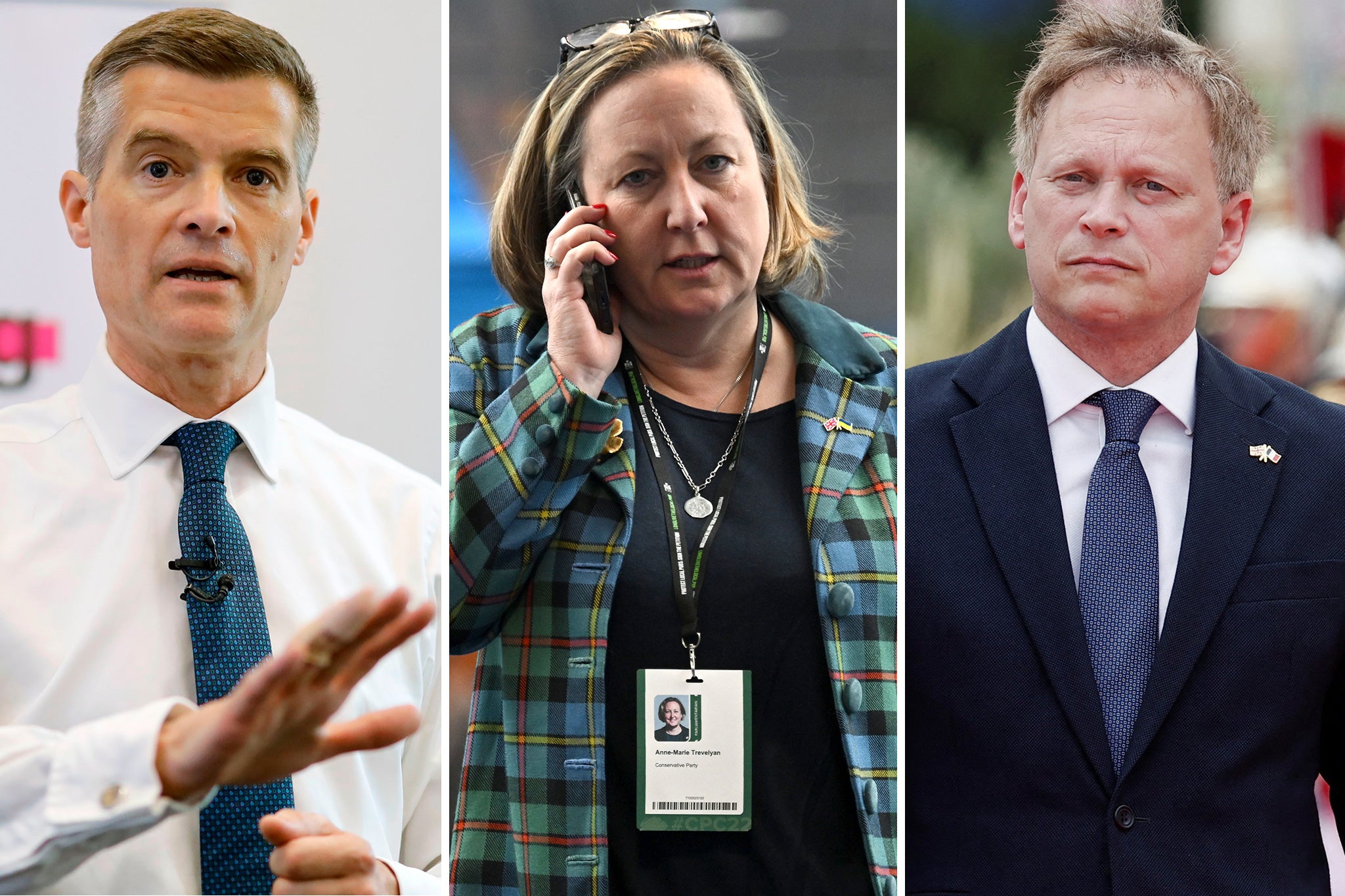Strikes, HS2 & Covid: Simon Calder on the highs and lows of the last three Tory transport secretaries
The Man Who Pays His Way: Highlights of the reigns of Shapps, Trevelyan and Harper

Support truly
independent journalism
Our mission is to deliver unbiased, fact-based reporting that holds power to account and exposes the truth.
Whether $5 or $50, every contribution counts.
Support us to deliver journalism without an agenda.

Louise Thomas
Editor
The voters of Welwyn-Hatfield, Berwick-upon-Tweed and the Forest of Dean have changed their minds. In 2019, they chose Conservative MPs. This time around, they have gone to Labour.
Which means for the first time, the three most recent transport secretaries have all been ousted in an election. A good moment, then, to reflect on the trio’s outstanding moments working for the last government.
Grant Shapps managed over three years in the role – during which he will mostly be remembered for the Covid “traffic lights” lottery. Mr Shapps was responsible for administering travel restrictions during the pandemic. His decisions often bore little resemblance to rational thought.
On 10 July 2020, Mr Shapps opened the first so-called “travel corridors” – allowing quarantine-free trips to France, Italy and Spain.
Within 15 days, our most popular overseas nation, Spain, was back on the “no-go” list – with Mr Shapps one of the people having to self-isolate for two weeks on his return from holiday.
What a rollercoaster it was after that. By 9 September 2020, travel restrictions had become granular, with quarantine mandatory from just seven Greek islands: Crete, Lesvos, Mykonos, Santorini, Serifos, Tinos and Zakynthos (Zante). Ministers, including Mr Shapps, appeared completely to have lost the plot.
The Foreign Office advice – for which Mr Shapps was not directly responsible – placed the Portuguese mainland in the same risk category as central Kabul and parts of Somalia.
By January 2021, the government was warning: “Going on holiday is illegal.” Mr Shapps was presiding over the near-collapse of what had previously been the world’s best travel industry.
“Please don’t go ahead and book holidays for something which at this stage it is illegal to actually go and do,” he urged the non-travelling public. One of his constituents was the notable Julia Lo Bue-Said, chief executive of the Advantage Travel Partnership. She later observed: “The government embarked on a preposterous advertising campaign, spending taxpayers’ money promoting going on holiday as illegal.
“It made criminals out of travellers, criminalising the outbound travel sector and leaving it with no ability to trade in the only way it can.
“Time and time again we heard ministers condemning outbound travel, encouraging Brits to stay at home despite rising Covid cases in the UK.
“The damage done at the time by ministers, even as travel bans lifted was unjust, causing the sector significant harm and distress.”
On 3 June 2021, I tweeted: “The day the travel industry died?”
Grant Shapps had just reimposed quarantine on visitors to Portugal, the only viable major destination on the so-called “green list“.
In October 2021, he promised: “We are accelerating towards a future where travel continues to reopen safely and remains open for good.”
The following month, mandatory testing and quarantine for everyone was introduced. In January 2022 Mr Shapps said the rule had “outlived its usefulness”, but it stayed in place for a further 18 days. Mr Shapps stayed in place until Liz Truss took the helm in September 2022.
Anne-Marie Trevelyan served for Ms Truss’s entire 45-day reign as transport secretary – during which time she had little time to achieve anything. Her leading non-achievement was to deliver on her prime minister’s vow to save Doncaster-Sheffield airport. It promptly closed permanently.
Mark Harper, to his credit, was the one transport secretary of the last government to engage with journalists like me. But he was also the man at the Department for Transport when Rishi Sunak tore up 15 years of cross-party agreement on the desperate need for a high-speed rail link from the Midlands to northwest England. And under his watch, the longest industrial dispute in railway history – with the train drivers’ union, Aslef – dragged on from the summer of 2022, causing misery to passengers almost to the end of his political career.
And so, Labour have chosen Louise Haigh as transport secretary, time will tell as to how she handles the hottest seat in government
Subscribe to Independent Premium to bookmark this article
Want to bookmark your favourite articles and stories to read or reference later? Start your Independent Premium subscription today.
Join our commenting forum
Join thought-provoking conversations, follow other Independent readers and see their replies
Comments